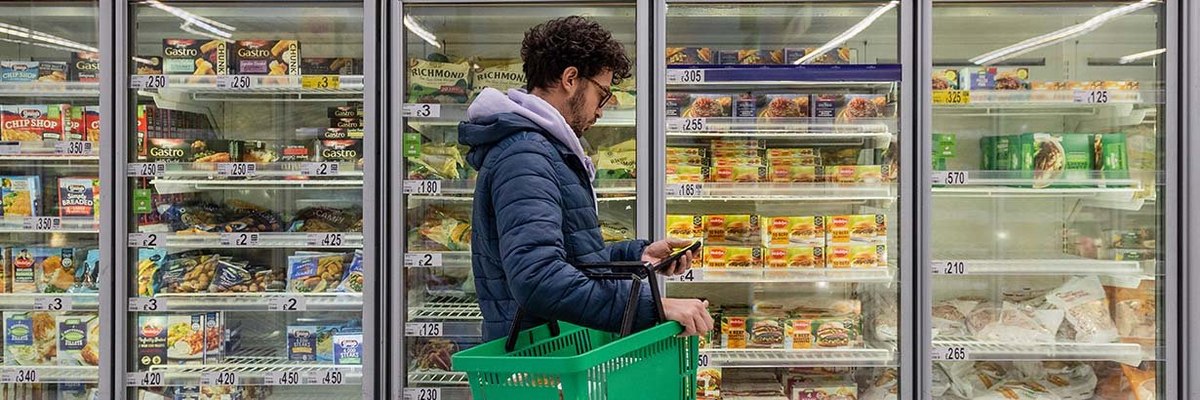But few have confidence in those vying to lead the nation to tackle the crisis
In the coming days, Rishi Sunak or Liz Truss will be unpacking boxes inside Number 10 before setting to work on tackling the issues of the day in their new role as prime minister. But what do the public consider the priorities facing the new PM to be?
Seven in ten (69%) Britons put the rise in the cost of living in their top three issues they think the new PM should be focussing their efforts on, far ahead of second-placed – and not unconnected – “the economy”, at 39%. Unrelated issues like third-placed health and fourth-placed climate change are less important still, at 23% and 19% respectively.
That the cost of living dominates Britons’ concerns is clear. But the new prime minister who will be in charge of steering the UK through the crisis is being bequeathed a poor legacy by their predecessor.
With the situation set to get worse still – energy bills are set to increase by around 80% in October and inflation is forecast to hit 13% – this is compounded by the fact that people think the government has failed to help people keep their heads above water through the current stage of the crisis. Three quarters of Britons (77%) say Boris Johnson’s government has done too little to support people struggling with the increasing cost of living.
Neither of the two Tory hopefuls for PM have the most popular plan for tackling the rise in the cost of living
With the public clamouring for solutions to the cost of living crisis, Conservative frontrunner Liz Truss still has not yet fully detailed her plans. What she has stated is that measures she will introduce will focus on tax cuts for the public and businesses, whilst making any additional support highly targeted to the most vulnerable households. Put to the public, just short of half (47%) of Britons think this plan is conceptually a good idea, with little over a quarter (27%) believing it to be a bad idea.
Though rival Rishi Sunak is lagging behind in the polls amongst Tory members, his proposal for dealing with the cost of living is more popular with the public at large. Sunak’s proposal – to provide direct payments to those on means-tested benefits and pensioners, along with cutting the rate of VAT on energy bills – is considered to be a good idea by a clear majority of Britons (62%). Only 17% consider it to be a bad idea.
However, the Tory hopefuls’ archenemy – Labour leader Keir Starmer – has more popular plans still. His proposal to freeze energy bills over the winter in place of the current £400 payment to households is seen as a good idea by 69% of Britons, whilst just a 13% think it’s a bad idea.
Starmer is also more trusted than Truss and Sunak to deal with the cost of living crisis, although even he is still only trusted by a third of people (31%), compared 21% who trust Sunak and 13% with faith in Truss.
Labour also proves most trusted party when it comes to dealing with the cost of living, with 28% giving them their backing. Fewer than half as many Britons (13%) trust the Conservatives the most. However, more Britons still (36%) trust none of the main parties to manage the cost of living crisis.
How hard are Britons being hit by the cost of living crisis?
While those at the top have spent much of the cost of living crisis tussling for control, most Britons have been watching their quality of life decline as the prices mount. Two thirds (66%) have had to make some kind of cutback to their household spending, including 23% who have had to cut back on key essentials. Among those in the lowest income households (earning below £20,000 a year) the number having to cut their essentials spending rises to two in five (39%).
Most expect more pain to come, with energy bills in particular hammering Britons’ finances. One in four (25%) currently do not believe they would be able to afford the anticipated increases in energy bills, even if they make cuts elsewhere. Half (47%) will have to make cuts to afford them, and just 18% expecting to be able to afford them without making cuts.
That the cost of living crisis is hurting more than just the poorest in society appears to have been acknowledged by chancellor Nadhim Zahawi, who has said that even middle earners are likely to need help with their household bills this winter.
When it comes to who should be offered government support, few Britons think it should only be restricted to those most in need (18%). Most (60%) saying the government should provide some help to all households, with additional assistance to those most in need. Only 13% favour a blanket approach of giving equal help to all households, without extra support for the neediest.
See the full results here, here and here
Photo: Getty










